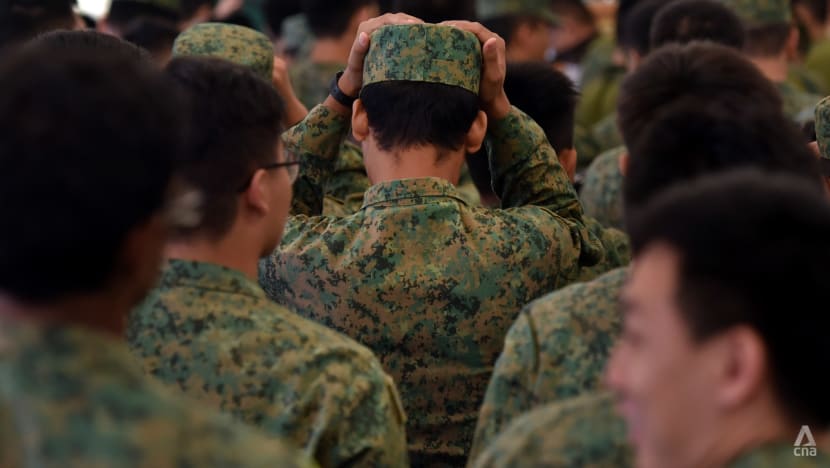SAF Amnesty Scheme for drug offences only available to SAF soldiers once: Ng Eng Hen

File photo of national servicemen in Singapore. (Photo: CNA/Jeremy Long)
SINGAPORE: The Singapore Armed Forces (SAF) Amnesty Scheme, which is for soldiers who have confessed to taking illegal drugs, is only available to soldiers once, said Defence Minister Ng Eng Hen on Monday (Sep 12).
Normal penalties will apply for subsequent drug offences, he added.
Under the SAF Amnesty Scheme, those who have consumed illegal drugs can choose to confess without being punished. Soldiers will receive counselling and rehabilitation support to help them kick their habit.
They will also undergo regular tests, said Dr Ng in response to a parliamentary question by MP Zhulkarnain Abdul Rahim (PAP-Chua Chu Kang) on the steps taken for detecting and preventing abuse of controlled substances in military installations.
The SAF Amnesty Scheme was introduced in 1976 to provide an opportunity for drug abusers to seek help.
Singapore swimmer Joseph Schooling confessed to consuming cannabis overseas in May when he was on short-term disruption from full-time National Service (NS) to train and participate in the SEA Games.
Urine tests for controlled drugs conducted on Schooling returned negative.
Known or suspected drug abusers who have confessed or had recent drug convictions will be put on a urine test regime and drug counselling sessions. During the test regime, they will be screened up to three times a week for up to six months.
"If they test positive, they will be investigated for drug offences and potentially charged in court martial. This serves as both a deterrence and a form of rehabilitation to help them stay away from drugs," Dr Ng said.
Urine tests are conducted across the SAF to monitor for drug abuse. All enlistees undergo urine tests during their Basic Military Training (BMT).
Such tests are also conducted without notice in units, overseas bases and training locations, as well as on returning service personnel, the Defence Minister said.
The SAF Military Police conducts routine spot checks to ensure that illegal products, including controlled drugs, are not brought into SAF premises. The Central Narcotics Bureau (CNB) informs the SAF Military Police Command when SAF personnel are arrested for drug offences.
"Enforcement against SAF soldiers who are drug abusers is strict for deterrence," said Dr Ng.
SAF servicemen or women who test positive during urine screening will be charged. They are typically sentenced by the military courts to a minimum of eight to nine months detention in the SAF Detention Barracks, he added.
All recruits attend talks conducted by the SAF Counselling Centre (SCC) during their BMT on the harmful effects of drugs.
After BMT, anti-drug talks are conducted periodically by the SCC and CNB at SAF camps and units. Before overseas exercises or postings, SAF personnel are briefed on and reminded of the consequences of taking drugs overseas, said Dr Ng.











